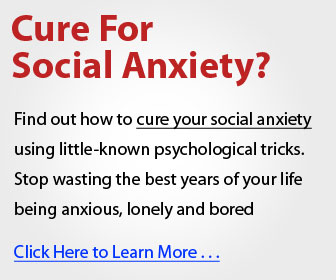What is Social Anxiety?

Social anxiety, also known as social anxiety disorder or social phobia, is a mental health condition where a person feels intense fear, nervousness, or embarrassment in social situations. This is particularly true in situations where they might be judged, criticized, or observed by others. It is more than just being shy; it can disrupt work, school, and relationships.
How to Be Yourself: Quiet Your Inner Critic and Rise Above Social Anxiety by Ellen Hendriksen
Ellen Hendriksen offers a warm, science-backed guide to breaking free from self-doubt and fear of judgment. With compassion and humor, she shows that you don’t need to change who you are—you just need to quiet your inner critic and let your true self shine. Empowering and practical, this book helps readers step into social situations with confidence and authenticity.
People with social anxiety often:
- Worry a lot about saying or doing something wrong
- Fear being humiliated or rejected
- Avoid social gatherings, public speaking, or meeting new people
- Experience physical symptoms like sweating, trembling, a rapid heartbeat, or nausea in social settings
Causes of Social Anxiety
Social anxiety often comes from a mix of genetic, environmental, and psychological factors. People may inherit a tendency to anxiety, and stressful or humiliating social experiences—especially during childhood or adolescence—can strengthen the fear of judgment or rejection. Overactive brain areas linked to fear, such as the amygdala, can increase sensitivity to perceived social threats.
Family dynamics, like overprotective or overly critical parenting, can play a role as well, along with cultural pressures to perform or fit in. These factors together create a pattern of self-conscious thinking and avoidance that keeps social anxiety going over time.
The Shyness and Social Anxiety Workbook: Proven, Step-by-Step Techniques for Overcoming Your Fear Paperback by Martin M. Antony PhD & Richard P. Swinson MD
This trusted workbook provides a structured path to overcoming social anxiety using evidence-based Cognitive Behavioral Therapy techniques. Through clear exercises and real-world strategies, it helps readers challenge anxious thoughts, build social confidence, and reclaim their lives. Encouraging and easy to follow, it’s an ideal hands-on companion for anyone ready to take control of their fear.
Tips on Overcoming Social Anxiety
Challenge negative thoughts. Notice self-critical or fearful thoughts, such as “They’ll think I’m awkward,” and replace them with more balanced ones like, “Most people are focused on themselves, not judging me.”
Practice gradual exposure. Start small by saying hello to a coworker or asking a simple question in class. Gradually work up to larger social situations. Facing fears repeatedly lowers anxiety over time.
Focus outward, not inward. Instead of worrying about how you appear, concentrate on the conversation or task in front of you. Redirecting your attention helps reduce anxiety.
Learn relaxation techniques. Use deep breathing, mindfulness, or progressive muscle relaxation to calm physical symptoms like a racing heart or tense muscles.
End Your Shyness & Social Anxiety by LearnWell Books
Straightforward and motivating, this book delivers practical steps to help readers understand and overcome shyness and social anxiety. With relatable examples and actionable advice, it teaches how to face fears, build self-assurance, and enjoy social connections without stress. A quick, uplifting read for anyone seeking to grow more comfortable and confident in their own skin.
Seek support. Cognitive Behavioral Therapy (CBT), support groups, or talking with a trusted friend or therapist can help you understand your triggers and build confidence over time.

Recommended books available in multiple formats at great prices from Amazon.
